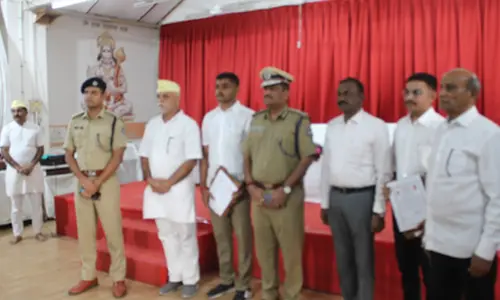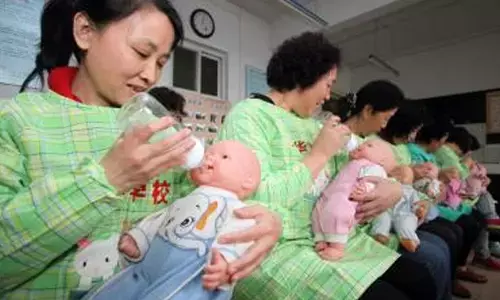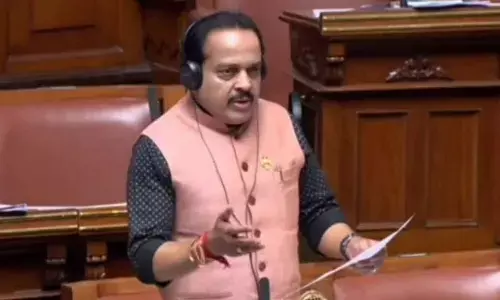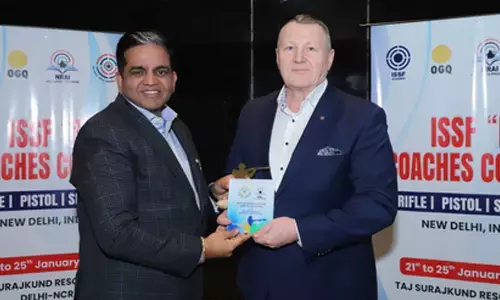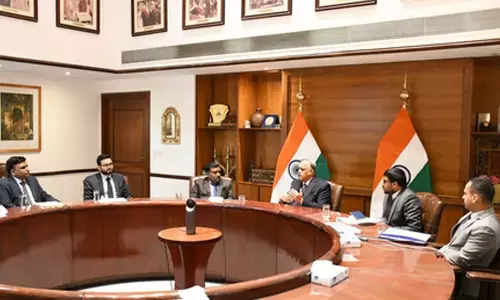Slowdown puts auto sector in reverse gear
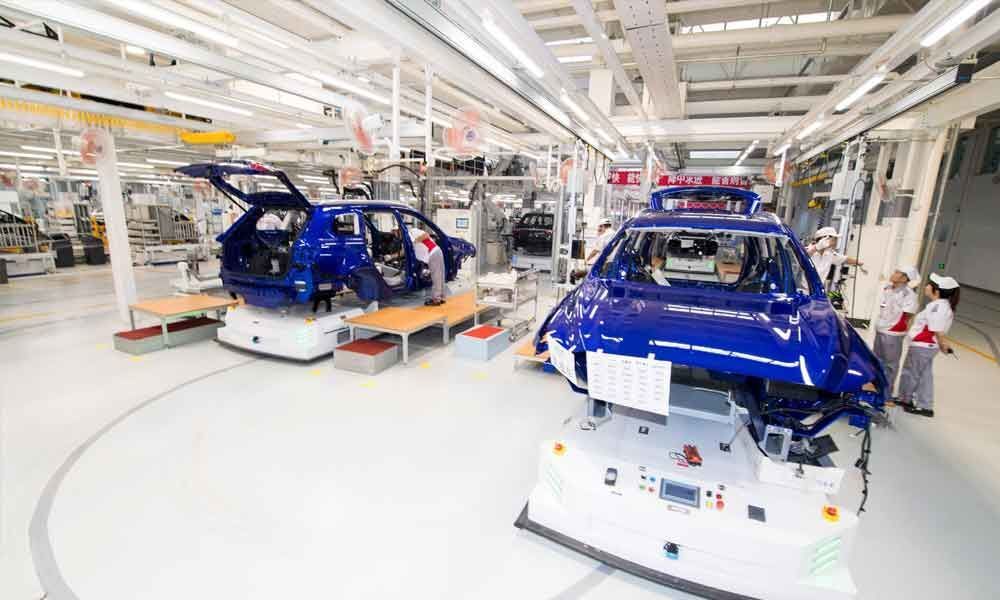
The Indian automobile industry is in reverse gear due to economic slowdown with sales plunging, inventories piling up, carmakers slashing production and cutting jobs in thousands, an industry official said on Saturday.
Bengaluru: The Indian automobile industry is in reverse gear due to economic slowdown with sales plunging, inventories piling up, carmakers slashing production and cutting jobs in thousands, an industry official said on Saturday.
"The worst fears of the slowdown impacting the auto sector is evident from the first-quarter results (April-June) of this fiscal (2019-20) from carmakers, their ancillary units, component suppliers, dealer sales and job losses," the official told IANS here.
Though the resilient industry has faced many challenges over the years to sustain growth, a combination of factors has 'conspired' this time to deal a body blow to its survival even as its stakeholders hope for a revival from the ensuing festive season and the economy turning around.
"The sentiment for buying new cars was subdued in the first half of this year for various reasons. These include uncertainty on the general elections' outcome, liquidity crunch and high-interest rates and less purchasing power, which resulted in inventory levels scaling up and dealers becoming unwilling to place orders for more cars to avoid defaulting on mounting credit," said the official, who's a member of the Society of Indian Automobile Manufacturers (SIAM), on condition of anonymity.
With a stable and pro-active government at the Centre, the industry is also betting on a stimulus package from the Union Finance Ministry ahead of the Dussehra and Diwali festivals to kick-start the economy.
"As the southwest monsoon has been active and the Union Budget for this fiscal has provided incentives for robust growth, the lowering of the interest rates by the central bank (RBI) will spur growth to push sales upwards," asserted the official.
Echoing the industry view on the sentiment, N. Raja, the Deputy Executive of Japanese Toyota's Indian arm, too said the upcoming festive season would provide a breather for the industry with a spur in customer sentiments.
"High insurance costs, rise in taxes and liquidity crunch in the non-banking finance companies (NBFCs) and tightening of lending norms have badly affected the sales of new cars of all makes," Raja said in an e-mail to IANS.
The industry is also expecting the government to reduce the Goods and Services Tax (GST) to 18 per cent from the highest 28 per cent slab to boost sales and reduce inventory so that production capacity is fully utilised.
According to SIAM, the Indian auto sector has been under pressure for over a year due to lower GDP growth rate and negative customer sentiments, which have resulted in a whopping 3.5 lakh workers losing jobs due to lay-offs in the core and ancillary industries.
"Besides lay-offs by the OEMs (original equipment manufacturers), their dealers were forced to sack 2 lakh people across the country during the last three months to cut costs and reduce overheads, as their sales turnover and volumes declined by 50 per cent annually over the same period in the last fiscal (2018-19)," Ashish Harsharaj Kale, President, Federation of Automobile Dealers Association (FADA), said in a statement recently.
The industry apex body SIAM said the auto sector produced 72,15,513 vehicles, including passenger cars, commercial vehicles, three-wheelers, two-wheelers and quadricycle in April-June 2019 as against 80,64,744 in the like period of 2018-19, registering 10.53 per cent decline year-on-year (YoY).
"The production of passenger cars, utility vehicles and vans declined by 23.32 per cent, 4.53 per cent and 25.66 per cent, respectively, in the first quarter (Q1) of this fiscal," SIAM said in a statement on July 10.
The commercial vehicles segment posted a 9.53 per cent decline in production, with medium and heavy commercial units accounting for 16.6 per cent and light commercial vehicles for 5.06 per cent.
Similarly, three-wheeler production declined 7.35 per cent, with passenger carriers registering 8.74 per cent decline and goods carriers 1.45 per cent.
Likewise, two-wheelers production had 11.68 per cent de-growth in the quarter, with scooters declining 16.72 per cent, motorcycles 8.76 per cent and mopeds 19.02 per cent.
With no signs of recovery until the government steps in to pump-prime the economy, dealers fear more job cuts, as they may have to shut down more showrooms and garages.
"The majority of job cuts have happened in the last three months. It started around May and continued through June and July," FADA President Ashish Harsharaj Kale said.
"Passenger vehicles segment has been the worst hit with sales declining steadily over a year," recalled Kale.
In July, market leader Maruti Suzuki reported a 36.3 per cent YoY drop in domestic sales, while Hyundai saw a dip of 10 per cent.
M&M sales were also down 16 per cent, Tata Motors sales' fell 31 per cent while that of Honda Cars India Ltd slumped 48.67 per cent during the month under review.
As a dependent industry of the sector, the auto parts and component makers and suppliers fear they may also have to lay-off their workforce if sales continue to decline in the second half of the present fiscal.
"Though the automobile component industry grew 14.5 per cent to $57 billion in fiscal 2018-19, the declining sales over the last 2-3 quarters have resulted in substantial lay-offs in their clusters, which employ about 50 lakh people across the country," Vinnie Mehta, Director General, Automotive Component Manufacturers Association (ACMA), recently said in a statement.
The first half of the last fiscal posted double-digit growth, while the second half witnessed a sharp slump in sales.
"About 15-20 per cent of the workforce face lay-offs in the auto ancillary sector if sales do not revive and pick up momentum," Mehta said.
Passenger car sales declined in 11 of the last 12 months, with the first quarter of this fiscal being the worst in nearly two decades.
In India's tech hub Bengaluru, Jamna Auto Industries Ltd, which makes springs for vehicle suspensions, said that it may have to soon shut all its nine production units across the country if the weak demand persisted from its customers.
"In view of the weak customer schedule and high inventory, the company has made changes in the production schedule at all its plants. The plants may not run or partially run on all working days in August," Jamna Auto said in a regulatory filing on August 8.
Subdued auto sales and high costs have also applied brakes on fresh hiring in the once burgeoning industry.
The slipping demand has forced the OEMs to slash production and stall hiring and hiking wages.
The auto industry provides a whopping 370 lakh direct and indirect jobs across the country.
"The slowdown has led to an imminent shut down for a short period, which impacts jobs for even the temporary workforce and can spread to the permanent employees," said Grant Thornton India Partner V. Sridhar.
According to a recent India Ratings and Research (Ind-Ra) report, sales of commercial vehicles (in volume growth) also remained muted on account of delayed purchases owing to weak customer sentiment, rising borrowing costs, increased fuel prices and slow performance of the care sector.
"Sales were affected by lower credit availability owing to a liquidity crunch in the non-banking finance company sector, which is the main source of funding for CVs," the report said.









